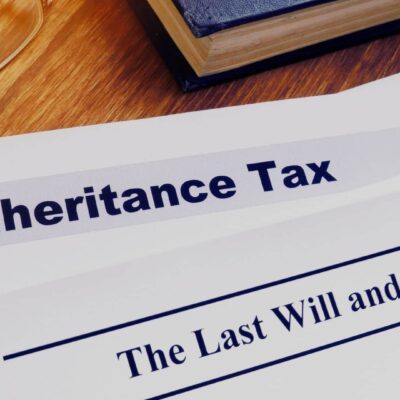Fourteen years ago, the total Inheritance Tax collected by HMRC in the 2008/2009 year was £ 2.8 billion.
Since then, the figure has more than doubled. In 2021/2022, HMRC collected over £6 billion in Inheritance Tax. In 2022/23, this figure increased to approximately £7 billion.
By the end of the decade, this is expected to increase to £10 billion.
Inheritance Tax Increase
Why the enormous increase? Well, there are two main reasons.
Firstly, the main Inheritance Tax threshold (the point at which a deceased person’s estate starts paying Inheritance Tax) has not increased since 6 April 2009 and will not increase again until 6 April 2026.
Secondly, house prices have nearly doubled over the same period of time.
How To Save Inheritance Tax?
The solution seems simple: just give away your home.
However, as with most areas of tax law, HMRC have already taken steps to prevent the simple solution.
If you give away your home to family and continue to live in it, HMRC will treat the gift as invalid unless you pay full market rent to your family.
Full market rent is what your property would be let for on the open market, and it has to be paid for the rest of the time that you live in the property, regardless of how long that is.
If you stop paying rent at any point, the gift is invalid, even if it has been more than seven years since you gave away your home. If full market rent increases, but you do not increase how much you pay to your family, the gift is also invalid.
With full market rents at a record high, most people cannot afford to give away their home. Without full professional advice (which we cannot cover in this article), giving away your home is very risky and cannot be recommended.
Four Steps To Save On Inheritance Tax
So, what simple steps can you take to save Inheritance Tax?
We recommend the following approach:
- Check what your estate is worth.
As part of that process, get a trusted local estate agent to value any property you own. - Check that your Will still divides your estate how you wish.
If you do not have a Will or it is out of date, contact us so we can make sure that you have the correct Will for your circumstances. - Get professional advice to check your own Inheritance Tax threshold.
For a single or divorced person, the maximum threshold is between £325,000 and £500,000. For a married couple or a widow/widower, the maximum threshold is between £650,000 and £ 1 million. However, your exact threshold does depend on your individual circumstances, including how your Will divides your estate. - If your estate is worth more than your individual Inheritance Tax threshold, you can afford to do so, and you are not in need of care in the foreseeable future, make gifts from your savings. If you wish to sell or give away shares or a property that you do not live in, professional advice is needed beforehand, as you may incur an unexpected Capital Gains Tax bill.
How Much Can You Give Away?
There are three rules to follow, but it is always best to get professional advice before making any gifts.
Each person can give up to £250 per tax year to as many individuals as you wish. For example, you can give each grandchild £250 each tax year (6th April to 5th April).
Each person can give up to £3,000 per tax year, split between individuals. For example, you can divide £3,000 between your children each tax year. If you give someone more than £250 in a tax year, the whole amount you give that person counts towards the £3,000 rule.
If you give away more than £3,000 per tax year (apart from individual £250 gifts), you need to live for seven years afterwards. If you die within seven years, the value of the gift is included in the value of your estate when calculating the Inheritance Tax bill.
Find Out How To Save Inheritance Tax With Monan Gozzett
If you wish to explore any of these simple steps, check your Inheritance Tax position or update your Will, please contact us to arrange an appointment.
You can use any of the details below.
Please note that we are unable to offer free legal advice. Our client services team are here to take your case details and explain any costs involved
If you would like to speak to our expert legal team about this, or any related subject then please contact our team by phone on 0207 936 6329, Email or by completing our Quick Contact Form below.
Please note that we are unable to offer free legal advice. Our client services team are here to take your case details and explain any costs involved
